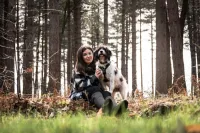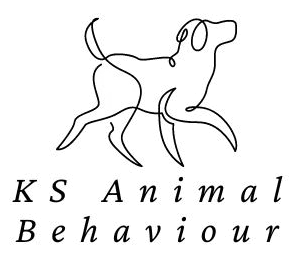

Provisional Association of Pet Behaviour Counsellors (APBC) Member
⭐️⭐️⭐️⭐️⭐️ 20+ 5-star reviews from Satisfied dog owners
Expert Dog Training and Behaviour Services in Norwich & Norfolk
Building Confidence and Overcoming Anxiety in Rescue Dogs
Empathetic and understanding approach for both dog and guardian
Provisional APBC member with Masters Degree in Applied Animal Behaviour and Welfare.
Specialising in anxious and rescue dogs
Personalised 1:1 training and behaviour plans
Puppy classes & dog training classes
Kind, ethical, and modern methods for long-lasting behaviour change




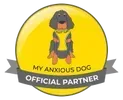


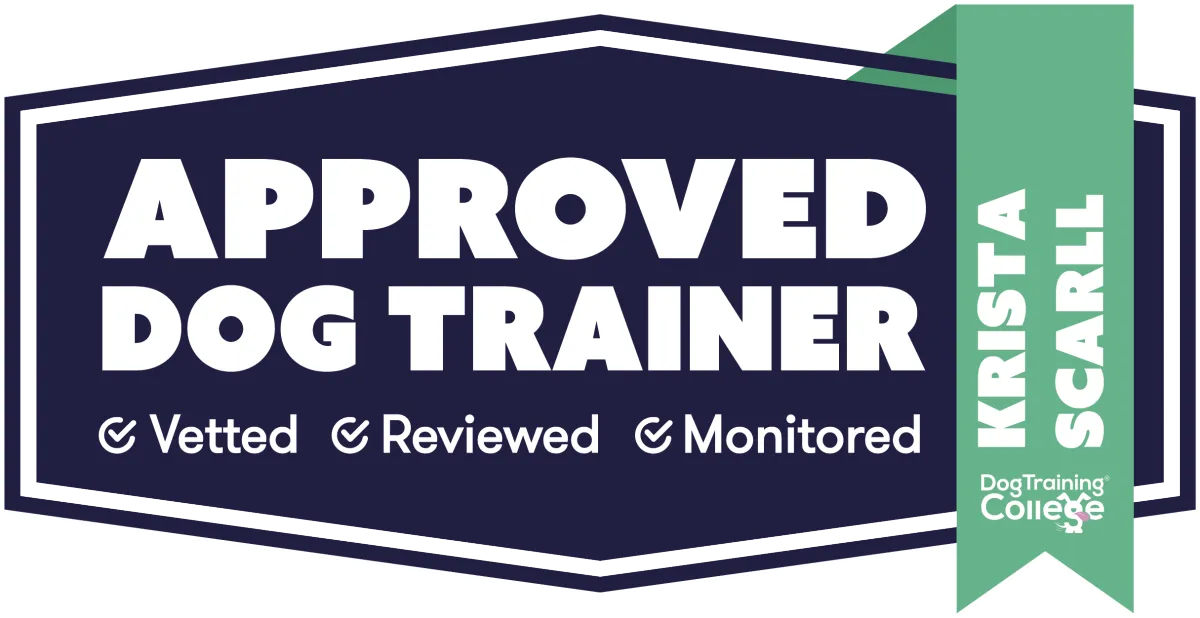
Services We Provide
1:1 Dog Training
Behaviour Consultations
Classes & Workshops
About
KS Animal
Behaviour
About
KS Animal Behaviour
At KS Animal Behaviour, we are dedicated to helping empathetic and caring rescue dog guardians build their dog's confidence and overcome anxiety and fear-based behaviors. Led by Krista Seago, a qualified professional with a Masters Degree in Applied Animal Behaviour and Welfare, we provide personalised training and behaviour solutions for anxious and rescue dogs in Norwich.
Our approach is rooted in empathy and understanding, ensuring both the dog and guardian feel supported throughout the journey. With over 50 5-star reviews from satisfied clients, we are committed to promoting kind and ethical training methods to create long-lasting behavior change. Choose KS Animal Behaviour for expert guidance and compassionate care."
Why choose the KS Animal Behaviour
Empathetic and understanding approach for both dog and guardian
Provisional APBC member with extensive qualifications
Specialising in anxious and rescue dogs
Personalised 1:1 training and behaviour plans
Kind, ethical, and modern methods for long-lasting behaviour change
Qualifications and Accreditations



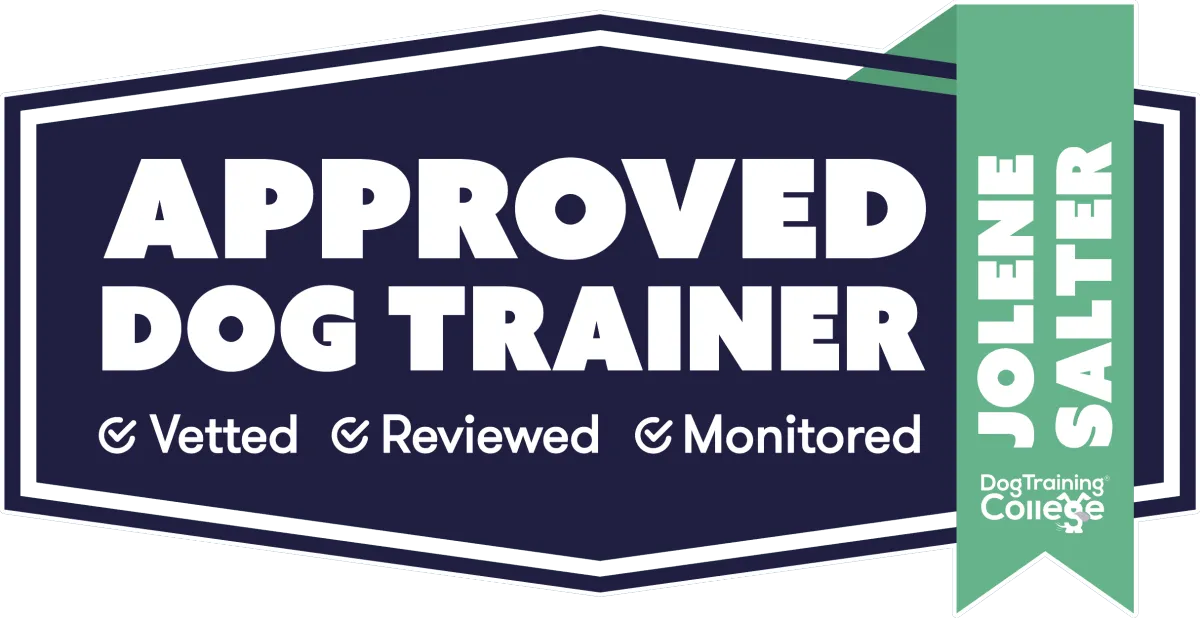


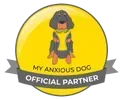
What Our Clients Say
Latest Blog Posts

Puppy survival guide
Puppy Survival Guide!

Bringing your puppy home is such a special and exciting time, we all love those cute puppy cuddles and playing with them... BUT, those sharp teeth and sleepless nights are starting to get to you.
Welcome to our puppy survival guide, with all the trade secrets to surviving the puppy stage!
First and foremost, it's important to note that puppies are HARD work! - it's ok to be struggling and shedding a few tears because puppy parenting was harder than you expected. Even us dog professionals struggle with the puppy blues (yes - there's even a term for it!), but you will get through this.
It's important to remember and appreciate that puppies are baby dogs, I know this seems a really obvious statement, but remembering that they are 1) animals, and 2) developing and learning, can help put it into perspective their behaviour and why they're behaving in this way. For example:
Puppies might cry through the night because they're only 8-12 weeks old and have never been alone before, they are small and vulnerable and just want to feel safe.
Puppies pee and poo on the carpet because they don't know any different, and can't yet control their bladder in the same way as an adult dog.
They bite and chew because this is how dogs explore the world, have an innate need to chew, and are likely teething at this stage and trying to find something to soothe their sore gums.
Although they are babies, they are constantly learning, so with consistency and patience, they will get there. Despite some of the information out there, they are absolutely not crying to dominate or control you with these behaviours.
Tips for survival:
Puppies need to feel safe
From your puppy's perspective coming into a new home can be really scary, they've just been taken away from everything they've ever known into a new environment, they don't know the routine or the rules yet.
As a social animal, puppies will often look to you as heir new guardian for support and safety. The relationship between puppies and their owners has been found to be comparable to that of a child and care-giver, forming a strong attachment from which they take a lot of security while settling into a new home. Having access to you is a large part of creating a secure attachment for your puppy.
Leaving your puppy alone overnight or during the day can be a stressful experience for them. In the absence of their human attachment figure they can feel vulnerable and anxious. While it is important to teach them to learn independence, this should be done gradually and with a compassionate approach. For this reason we strongly advise against the 'cry it out' method, where a puppy is left in distress when left alone, this can cause longer term issues with being left alone. Instead, create a safe and comfortable space for your puppy when starting to introduce periods of alone time.

Instead you can have your puppy sleep in your room initially and gradually move their bed further away, towards where you would like their permanent bed to be, or alternatively sleep with your puppy where their bed will be. Do not be afraid to comfort your puppy, it's important that they feel safe and supported when they're unsure.
The attachment between you and your puppy is strengthened through consistent and loving interactions. Spend quality time with your puppy when you are home, engaging in play, training, and cuddles. This will help them understand that you are their source of security and that they are safe in your presence. When you have to leave them alone, keep departures and arrivals low-key to avoid creating anxiety around these events.
It is also crucial to establish a routine for your puppy. Consistent feeding times, walks, and play sessions help create a predictable environment, which can be very reassuring for a young dog. A secure routine lets your puppy know what to expect, reducing their stress levels and helping them feel more in control.
In conclusion, as a puppy owner, it is vital to understand the importance of making your puppy feel secure and safe. By providing a nurturing environment, establishing a routine, and building a strong attachment, you are setting the foundation for a lifelong bond. Reject outdated methods that promote distress, and instead, embrace practices that cater to your puppy's emotional needs. Your puppy looks to you for guidance and protection, so make their sense of security a paramount concern.
Sleep is key!
Did you know that puppies need around 18 hours of sleep per day because they are developing and growing. Just like babies and toddlers, they're often afraid of missing out so may not choose to sleep for this long, this leads to grumpy, grizzly puppies who are much more likely to get bitey and generally display unwanted behaviours. This means we need to be keeping track of how much sleep our puppies are getting and provide them with a safe, quiet space for regular naps throughout the day.
As they age, they will need a bit less sleep (12-14 hours per day), but it will still be an important factor for their wellbeing and behaviour.
Management, management, management!
Again, just like babies and toddlers, you will need to puppy-proof your home and garden to prevent your puppy chewing furniture, eating plants, stealing socks and getting to areas you don't want them in. Stair gates, pens, crates and your dogs lead will be your best friends during the puppy stage. Preventing bad habits from developing at this stage will be much easier than undoing them later on, so set your dog up to succeed by ensuring that they are safe in the environment, and that the environment is safe from them!
Before your puppy arrives you should do a risk assessment of your home and determine any areas that might be a risk to your puppy and then manage accordingly.
For example:
Are there areas of your garden that your puppy might dig or eat your plants? Lets put a barrier in the way to prevent this, or if this isn't possible, keep your dog on a lead in the garden.
Worried your dog might pee on your nice new rug? Don't allow your puppy unsupervised access to that room until they're fully toilet trained, you can do this by keeping doors shut or by using gates/pens.
And remember at this stage, anything within reach is fair game and will be stolen! This quickly becomes a hilarious game for your puppy and a guaranteed way to get your attention for a good old game of 'chase me for this tea towel'.
Socialisation NOT socialising
These two words are often used interchangeably with new puppy guardians, but they do actually mean different things.
When we talk about socialisation we are talking about 'the process of learning to behave in a way that is acceptable to society' - not simply meeting lots of dogs and people.
Socialisation is about gentle exposure and acclimatising around all the things your dog is likely to encounter in life so that when they do, they're familiar with it, feel safe and are able to cope.
Things to include in your puppy socialisation:
traffic
handling
car journeys
household items - hoover, washing machine, mops etc.
objects with wheels - bicycles, pushchairs, skateboards, wheelchairs
other animals - cats, sheep, horses
sounds - thunder, fireworks, babies crying, doorbells, sirens
environments - vets, parks, houses, stairs, shops, novel objects, different surfaces
being alone
people - men, women, children, elderly, joggers, loud people, hats, hi-vis etc.
dogs - try to make these positive and calm exposures with known dogs
As you can see, people and dogs are a part of this, but a small part of a much larger picture. The emphasis here is watching and learning that it's 'no big deal' instead of interacting. Think quality, not quantity with any interactions your puppy does have, as it's especially important that they have positive exposures at this age.
Puppies are always learning
Training is an important part of raising a puppy, you may choose to attend a puppy class or seek 1:1 help with your puppy - either option is great. Studies have found that puppies that attended training in the first 6 months of life have a reduced likelihood of aggressive, destructive, compulsive and barking behaviours. With advise from a trainer you can prevent any issues from starting in the first place or developing into a habit.
With training in mind - it's no good turning up to your class or session for an hour every week and expecting that to do the trick. Your puppy is ALWAYS learning, so do your homework daily and be consistent with how you raise your puppy. Your management and how you approach any unwanted behaviours is also a big consideration here.
Lets take jumping up as an example. Many people don't want their dogs to jump up, especially as adult dogs, however puppies are often allowed to approach and jump up at people, who then greet the dog, which reinforces the behaviour. Instead, you could keep your dog on a lead to prevent them from jumping up, and teach them an alternative behaviour such as a sit, which only then allows them access to the person who can then greet them.
Training is a lifelong process, you will constantly be maintaining and working on behaviours to ensure they continue to have a strong association and a quick response, especially as you encounter new challenges in adolescence.
Although it does come with it's challenges, cherish every moment of puppyhood – you will miss it! Up next? The teenage years – brace yourself!

Puppy survival guide
Puppy Survival Guide!

Bringing your puppy home is such a special and exciting time, we all love those cute puppy cuddles and playing with them... BUT, those sharp teeth and sleepless nights are starting to get to you.
Welcome to our puppy survival guide, with all the trade secrets to surviving the puppy stage!
First and foremost, it's important to note that puppies are HARD work! - it's ok to be struggling and shedding a few tears because puppy parenting was harder than you expected. Even us dog professionals struggle with the puppy blues (yes - there's even a term for it!), but you will get through this.
It's important to remember and appreciate that puppies are baby dogs, I know this seems a really obvious statement, but remembering that they are 1) animals, and 2) developing and learning, can help put it into perspective their behaviour and why they're behaving in this way. For example:
Puppies might cry through the night because they're only 8-12 weeks old and have never been alone before, they are small and vulnerable and just want to feel safe.
Puppies pee and poo on the carpet because they don't know any different, and can't yet control their bladder in the same way as an adult dog.
They bite and chew because this is how dogs explore the world, have an innate need to chew, and are likely teething at this stage and trying to find something to soothe their sore gums.
Although they are babies, they are constantly learning, so with consistency and patience, they will get there. Despite some of the information out there, they are absolutely not crying to dominate or control you with these behaviours.
Tips for survival:
Puppies need to feel safe
From your puppy's perspective coming into a new home can be really scary, they've just been taken away from everything they've ever known into a new environment, they don't know the routine or the rules yet.
As a social animal, puppies will often look to you as heir new guardian for support and safety. The relationship between puppies and their owners has been found to be comparable to that of a child and care-giver, forming a strong attachment from which they take a lot of security while settling into a new home. Having access to you is a large part of creating a secure attachment for your puppy.
Leaving your puppy alone overnight or during the day can be a stressful experience for them. In the absence of their human attachment figure they can feel vulnerable and anxious. While it is important to teach them to learn independence, this should be done gradually and with a compassionate approach. For this reason we strongly advise against the 'cry it out' method, where a puppy is left in distress when left alone, this can cause longer term issues with being left alone. Instead, create a safe and comfortable space for your puppy when starting to introduce periods of alone time.

Instead you can have your puppy sleep in your room initially and gradually move their bed further away, towards where you would like their permanent bed to be, or alternatively sleep with your puppy where their bed will be. Do not be afraid to comfort your puppy, it's important that they feel safe and supported when they're unsure.
The attachment between you and your puppy is strengthened through consistent and loving interactions. Spend quality time with your puppy when you are home, engaging in play, training, and cuddles. This will help them understand that you are their source of security and that they are safe in your presence. When you have to leave them alone, keep departures and arrivals low-key to avoid creating anxiety around these events.
It is also crucial to establish a routine for your puppy. Consistent feeding times, walks, and play sessions help create a predictable environment, which can be very reassuring for a young dog. A secure routine lets your puppy know what to expect, reducing their stress levels and helping them feel more in control.
In conclusion, as a puppy owner, it is vital to understand the importance of making your puppy feel secure and safe. By providing a nurturing environment, establishing a routine, and building a strong attachment, you are setting the foundation for a lifelong bond. Reject outdated methods that promote distress, and instead, embrace practices that cater to your puppy's emotional needs. Your puppy looks to you for guidance and protection, so make their sense of security a paramount concern.
Sleep is key!
Did you know that puppies need around 18 hours of sleep per day because they are developing and growing. Just like babies and toddlers, they're often afraid of missing out so may not choose to sleep for this long, this leads to grumpy, grizzly puppies who are much more likely to get bitey and generally display unwanted behaviours. This means we need to be keeping track of how much sleep our puppies are getting and provide them with a safe, quiet space for regular naps throughout the day.
As they age, they will need a bit less sleep (12-14 hours per day), but it will still be an important factor for their wellbeing and behaviour.
Management, management, management!
Again, just like babies and toddlers, you will need to puppy-proof your home and garden to prevent your puppy chewing furniture, eating plants, stealing socks and getting to areas you don't want them in. Stair gates, pens, crates and your dogs lead will be your best friends during the puppy stage. Preventing bad habits from developing at this stage will be much easier than undoing them later on, so set your dog up to succeed by ensuring that they are safe in the environment, and that the environment is safe from them!
Before your puppy arrives you should do a risk assessment of your home and determine any areas that might be a risk to your puppy and then manage accordingly.
For example:
Are there areas of your garden that your puppy might dig or eat your plants? Lets put a barrier in the way to prevent this, or if this isn't possible, keep your dog on a lead in the garden.
Worried your dog might pee on your nice new rug? Don't allow your puppy unsupervised access to that room until they're fully toilet trained, you can do this by keeping doors shut or by using gates/pens.
And remember at this stage, anything within reach is fair game and will be stolen! This quickly becomes a hilarious game for your puppy and a guaranteed way to get your attention for a good old game of 'chase me for this tea towel'.
Socialisation NOT socialising
These two words are often used interchangeably with new puppy guardians, but they do actually mean different things.
When we talk about socialisation we are talking about 'the process of learning to behave in a way that is acceptable to society' - not simply meeting lots of dogs and people.
Socialisation is about gentle exposure and acclimatising around all the things your dog is likely to encounter in life so that when they do, they're familiar with it, feel safe and are able to cope.
Things to include in your puppy socialisation:
traffic
handling
car journeys
household items - hoover, washing machine, mops etc.
objects with wheels - bicycles, pushchairs, skateboards, wheelchairs
other animals - cats, sheep, horses
sounds - thunder, fireworks, babies crying, doorbells, sirens
environments - vets, parks, houses, stairs, shops, novel objects, different surfaces
being alone
people - men, women, children, elderly, joggers, loud people, hats, hi-vis etc.
dogs - try to make these positive and calm exposures with known dogs
As you can see, people and dogs are a part of this, but a small part of a much larger picture. The emphasis here is watching and learning that it's 'no big deal' instead of interacting. Think quality, not quantity with any interactions your puppy does have, as it's especially important that they have positive exposures at this age.
Puppies are always learning
Training is an important part of raising a puppy, you may choose to attend a puppy class or seek 1:1 help with your puppy - either option is great. Studies have found that puppies that attended training in the first 6 months of life have a reduced likelihood of aggressive, destructive, compulsive and barking behaviours. With advise from a trainer you can prevent any issues from starting in the first place or developing into a habit.
With training in mind - it's no good turning up to your class or session for an hour every week and expecting that to do the trick. Your puppy is ALWAYS learning, so do your homework daily and be consistent with how you raise your puppy. Your management and how you approach any unwanted behaviours is also a big consideration here.
Lets take jumping up as an example. Many people don't want their dogs to jump up, especially as adult dogs, however puppies are often allowed to approach and jump up at people, who then greet the dog, which reinforces the behaviour. Instead, you could keep your dog on a lead to prevent them from jumping up, and teach them an alternative behaviour such as a sit, which only then allows them access to the person who can then greet them.
Training is a lifelong process, you will constantly be maintaining and working on behaviours to ensure they continue to have a strong association and a quick response, especially as you encounter new challenges in adolescence.
Although it does come with it's challenges, cherish every moment of puppyhood – you will miss it! Up next? The teenage years – brace yourself!
Help Your Self to A FREE Book
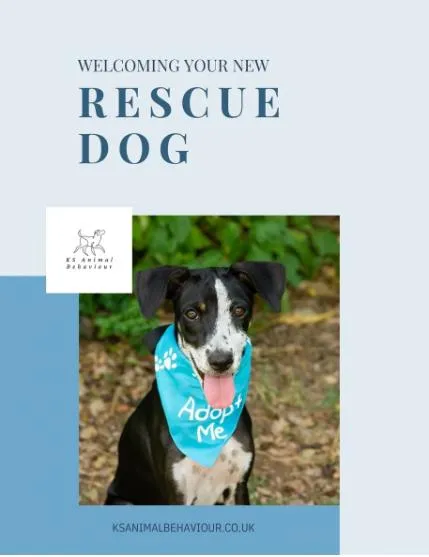
Welcoming Your New Rescue Dog
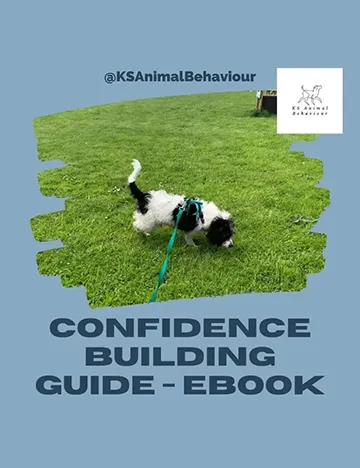
Confidence Building Guide For Dogs
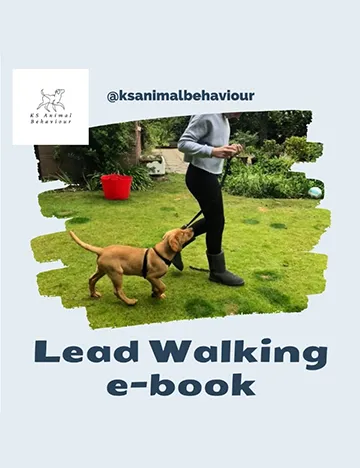
Lead Walking
Follow Us on Instagram for more!
Frequently Asked Questions
The questions we get asked the most:
What types of behaviour issues do you address?
We provide behavior consultations for various issues including separation anxiety, reactivity, aggression, resource guarding, and fear-based behaviors.
Do you offer online training sessions?
Yes, we offer both in-person and online 1:1 training sessions to accommodate different needs and preferences.
Can you help with training a new rescue dog?
Absolutely! We offer rescue pre-arrival consultations and new rescue support to help you and your new furry friend start off on the right foot.
What qualifications do you have?
Our founder, Krista Seago, holds a Masters Degree in Applied Animal Behaviour and Welfare and is a provisional member of the APBC.
What training methods do you use?
We believe in using kind, ethical, and modern training methods that promote long-lasting behavior change.
How long does it take to see results?
The timeline for behavior change varies depending on the individual dog and the specific issue. We work closely with you to develop a personalized plan and provide ongoing support to help you achieve your goals.
Do you offer workshops or group classes?
Yes, we offer both online and in-person workshops on topics such as Canine Body Language and Understanding Reactivity. Check our website for upcoming events.
Can you help with puppy training?
Absolutely! We offer puppy foundations sessions to help you lay a solid training foundation for your new furry family member.
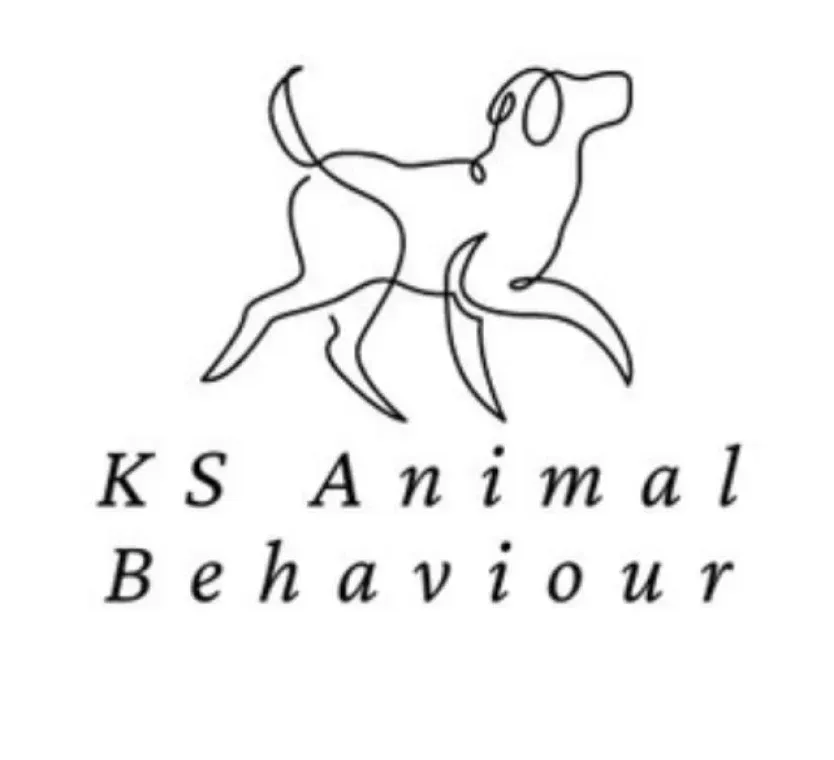
Privacy Policy
Terms of Services
Terms and Conditions of Services
©Copyright 2024 KS Animal Behaviour LLC | All Rights Reserved
